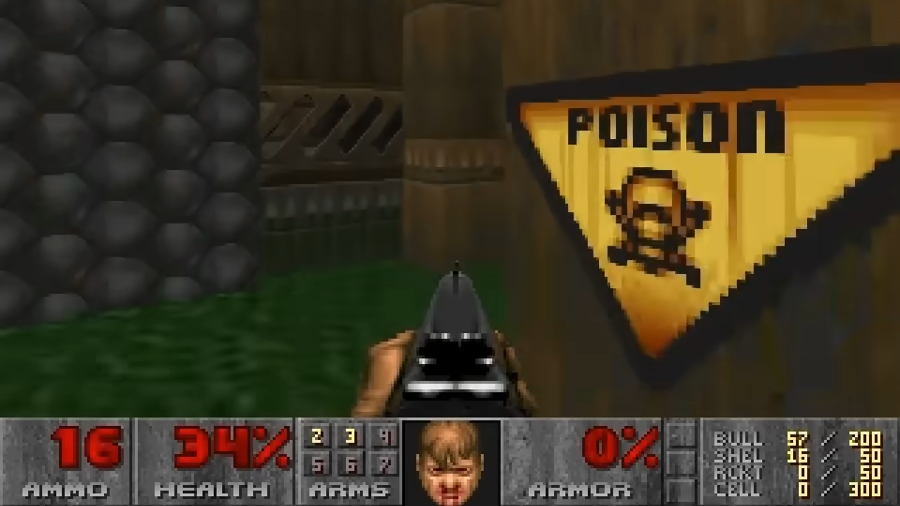
Doom has been ported to dozens of devices, but it’s never been playable quite like this.
Google researchers have now generated an AI version of the retro first-person shooter classic entirely via neural network, based on ingested video clips of gameplay.
It’s a milestone, if a grim one, recorded in a paper published this week entitled “Diffusion models are real-time game engines” (thanks, VentureBeat). This documents how a small team from Google were able to “interactively simulate” a version of Doom, with only a “slightly better than random chance” of humans being able to tell the difference.
Humans are still (currently) required to play Doom first, to provide the video clips of gameplay that are then fed into GameNGen, the research team’s game engine which is “powered entirely by a neural model”. It’s the same principle as the now-commonplace ability for AI to learn from and then generate static images, based on ingesting huge amouts of dubiously-sourced data online.
GameNGen then produces sequential frames based on its learnings of ‘watching’ that gameplay, which are then output at 20fps with a visual quality “comparable to the original”. Here’s how it looks:
“Can a neural model running in real-time simulate a complex game at high quality?” the paper asks. “In this work we demonstrate that the answer is yes. While not an exact simulation, the neural model is able to perform complex game state updates, such as tallying health and ammo, attacking enemies, damaging objects, opening doors, and persist the game state over long trajectories.
“GameNGen answers one of the important questions on the road towards a new paradigm for game engines, one where games are automatically generated, similarly to how images and videos are generated by neural models in recent years. Key questions remain, such as how these neural game engines would be trained and how games would be effectively created in the first place, including how to best leverage human inputs. We are nevertheless extremely excited for the possibilities of this new paradigm.”
Earlier this year, a major Eurogamer investigation looked at how AI was already changing video game development forever – with positive and negative results. A report from Unity in March claimed that more than 60 percent of game developers were already using AI at some stage in the development process.
